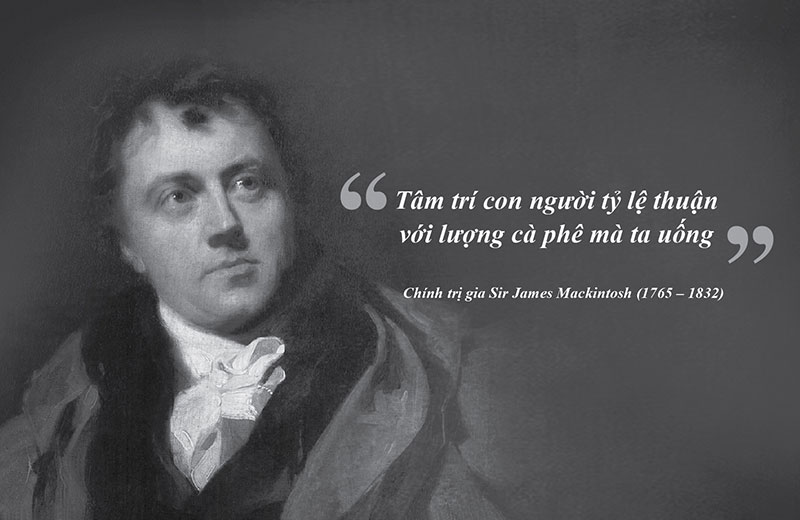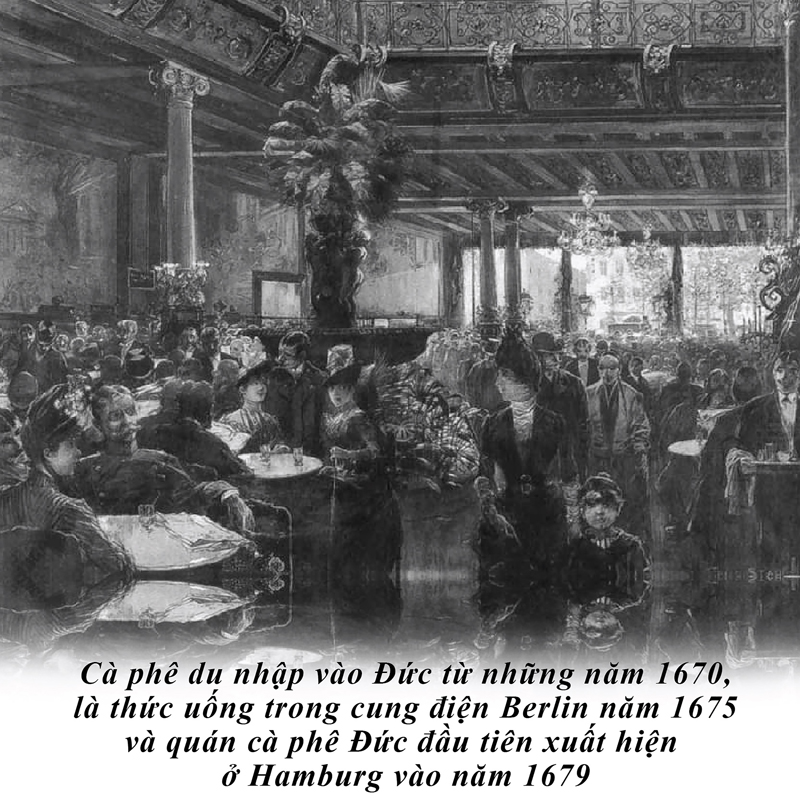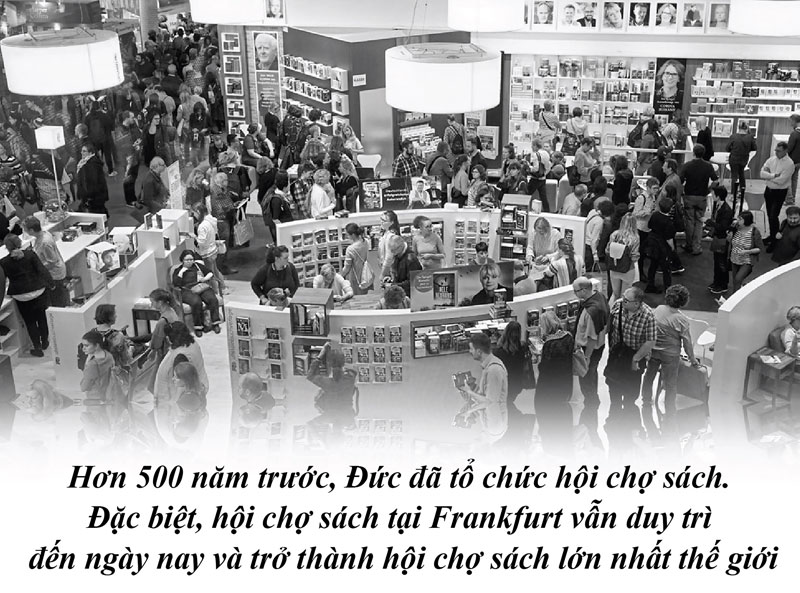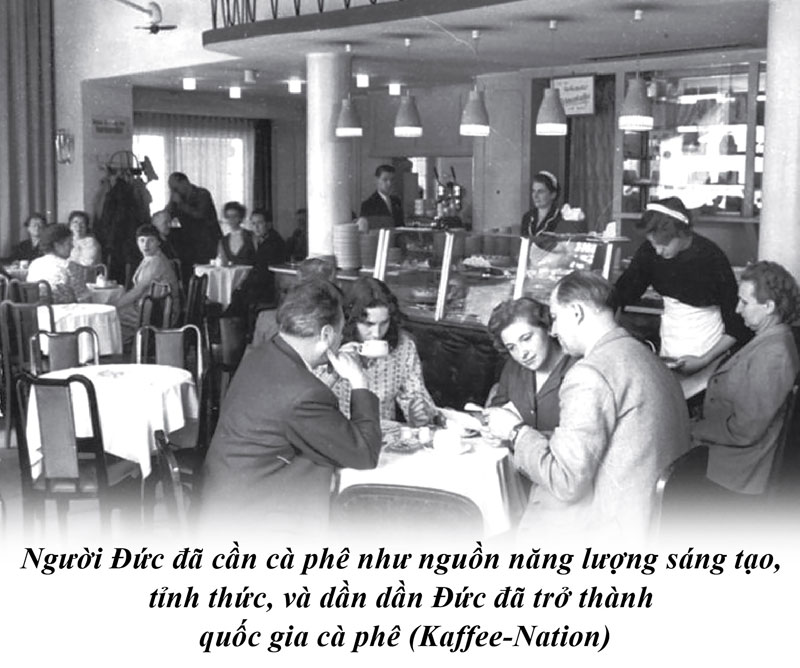Article 46: Coffee and books – the German recipe for prosperity
Germans have been drinking coffee for more than 300 years, with an average of 164 liters of coffee per person per year – more than water. And now, Germany is the most innovative economy in the world.

“The powers of a man’s mind are directly proportioned to the quantity of coffee he drinks” – Politician Sir James Mackintosh (1765-1832)
After World War II, Germany fell into “Stunde Null – Zero Hour”. The country was divided, the economy was exhausted, nearly 50% of the houses were wiped out, the famine persisted, the country was under the control of Britain, France, the United States, and the Soviet Union. In the midst of such ruins, Germany’s remaining resources were people. From the strength of each individual, each family and the combination of national strength, Germany achieved a miraculous development, rising to become the fourth largest economy in the world.
Coffee – the awakening and creative energy
People are the fundamental driver of prosperity. However, the path to prosperity is shortened, reaching a leap forward or slowing down completely depends on the size of their aspiration, intelligence and creative capacity. The “Zero Hour” adversity seemed to be a barrier, but before the aspiration to rebuild “Germany, Germany above all, above everything in the world” it became an opportunity to comprehensively train the mind as well as the mentality of the people, enriching the remaining “capital”. This created the Perfectionism and the creative daily lifestyle that Germans have always adhered to.
Perfectionism is more than 100% effort to create the best products, highly disciplined for optimal productivity, never satisfied with yourself, always set big goals and aim for creation. Practicing Perfectionism, the Germans needed coffee as a much needed source of energy to stay creative and awake, and gradually Germany became a Kaffee-Nation (coffee nation).

Coffee was introduced to Germany in the 1670s, as a beverage in the Berlin palace in 1675 and the first German coffee shop appeared in Hamburg in 1679
Coffee is the most consumed beverage in Germany. 86% of German adults drink coffee every day. The average German drinks up to 164 liters of coffee in a year, more than drinking water (148 liters). They drink coffee anytime, anywhere, in meetings, when working, with friends and even during meals. For the regular topic of conversation is business transactions and new ideas. Coffee is a special catalyst for thinking fast and making the right decisions.
51.6% of German companies provide free coffee to employees to create awakening, focus and discipline. That’s why Germans only work 35 hours per week, but their productivity is far superior to other countries. Although the population is only about 83 million compared to about 331 million in the US and 1.4 billion in China, the Federal Republic of Germany is one of the world’s export champions. Currently, it is a leading economy, playing a leading role in the European Union’s economy.
Germany is also the birthplace of the coffee filter, an invention in the early 20th century that influenced and changed the way coffee is enjoyed in many other countries around the world.
Books – the power of the knowledge base
Creativity and awakening are the levers of German economic development, but achieving a miraculous leap requires intellectual power. On the way to prosperity, knowledge is the driving force that turns desire into action, planning to put ideas into practice, connecting resources together to execute the plan…

More than 500 years ago, Germany held book fairs. In particular, the book fair in Frankfurt is still maintained to this day and has become the largest book fair in the world.
Germany has more than 11,000 public libraries covering both urban and rural areas. In every family and business, there are bookcases, even bookcases placed on the street, and public telephone booths so that people can read at all times. Every year, about 94,000 titles are published or reprinted.
Reading is the beginning of learning about the success of civilizations, understanding theories that have changed the world. And the deeper the knowledge, the stronger the self-awakening ability in the depth of the soul, the more self-conscious about one’s duty to the destiny of the country. Next is the application of knowledge to national practice thanks to creative capacity. Knowledge without application is meaningless, applying a stereotype will not make a difference to create momentum for a leap, and if the application is inappropriate, anti-scientific, it would become even more dangerous. Creativity requires knowledge as the driving force and organization to create valuable products. Knowledge needs creativity to promote progress in all areas of knowledge. In creativity and knowledge, it is necessary to have a great desire to unleash latent energy, to urge people to go beyond all starting points towards greater achievements.

The Germans needed coffee as a source of creative, awakening energy, and gradually Germany became a Kaffee-Nation
Great aspirations, awakening, creativity and intellectual power created the “German spirit” and the citizens who pursued Perfectionism brought the country from the ashes to rise to the leading power with global influence. After World War II, Germany made a miraculous leap in growth thanks to “super ideas”. Germany is a country that created the model of “Social Market Economy” – a unique policy to solve the problem of conflicts between social classes, and unite to revive the country’s economy. Inventions in modern industry such as: digital computers, programming languages, MP3 players, electron microscopes, televisions, phonographs, automobiles… are the levers that contributed to Germany becoming Europe’s leading economy in less than two decades. When the industrial revolution 4.0 broke out with breakthroughs in automation, Internet of Things, computing, etc., Germany affirmed its position as a creative powerhouse. In 2019, Germany has 46,634 valid patents. In early 2020, Bloomberg ranked Germany as the most innovative economy in the world.
Not only Germany, over the past 50 years, the world experienced a period of reconstruction growth and nearly 10% of countries have made a leap. In particular, countries and territories with a small area, poor resources or falling into the “zero hour” adversity such as Finland, Sweden, Denmark, Korea, Japan, Israel, Spain… are the countries that create the phenomenon of economic miracles. The common feature of these countries is that coffee consumption and the rate of people reading books are always at the top of the world.
Currently, the countries that consume the most coffee globally and read the most books are in the group of the world’s largest and most developed economies in the G7 or G20 group. Many modern economic researchers have argued that the prosperity of nations comes from creativity and knowledge. Coffee and books have played an important role in the way to the prosperity of each country, the success of each individual. While coffee is the energy for the creative brain, books provide the necessary knowledge base for full understanding, contributing to shortening the path to wealth, success and true happiness for each person, sustainable prosperity for nations.
THE REAL COFFEE
ROASTED ONLY FOR PEOPLE OF WISDOM!
Source: “The Philosophical Way of Coffee” – copyright by Trung Nguyen Legend


